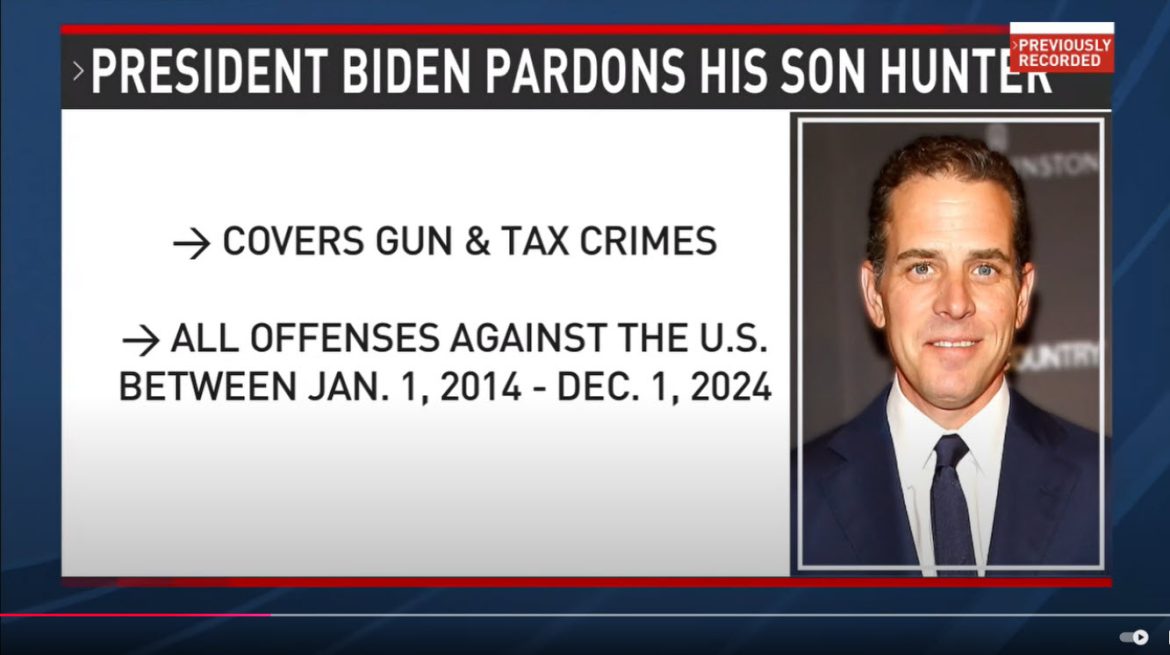President Joe Biden has granted a full and unconditional pardon to his son, Hunter Biden, covering offenses committed between January 1, 2014, and December 1, 2024. This decision marks a significant reversal from the president’s previous commitments to refrain from intervening in his son’s legal matters.
Hunter Biden faced legal challenges, including a conviction in June 2024 on three federal firearm charges and a guilty plea in September 2024 to nine tax-related offenses. These charges carried potential sentences of up to 25 years and 17 years in prison, respectively. Sentencing hearings were scheduled for December 2024.
In a statement released on Sunday, President Biden expressed that his son had been “selectively, and unfairly, prosecuted,” suggesting that political motivations influenced the legal proceedings. He emphasized that similar cases typically result in non-criminal resolutions and criticized the role of political opponents in instigating the charges. The president acknowledged the gravity of his decision, stating, “I hope Americans will understand why a father and a President would come to this decision.”
Hunter Biden responded to the pardon by taking responsibility for his past mistakes during a period of addiction. He expressed gratitude for the clemency and committed to dedicating his life to assisting others struggling with similar issues.
The pardon has ignited a spectrum of reactions across the political landscape. President-elect Donald Trump condemned the move as an “abuse and miscarriage of justice” and questioned whether the pardon extended to individuals charged in connection with the January 6th events. Republican lawmakers accused President Biden of hypocrisy and undermining the rule of law. Some Democrats also expressed disappointment, suggesting that the decision could set a concerning precedent and potentially erode public trust in the impartiality of the justice system.
This unprecedented action, involving a sitting president pardoning his own child, has intensified debates about the appropriate use of presidential clemency powers and the potential implications for the integrity of the U.S. legal system.



